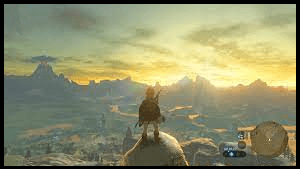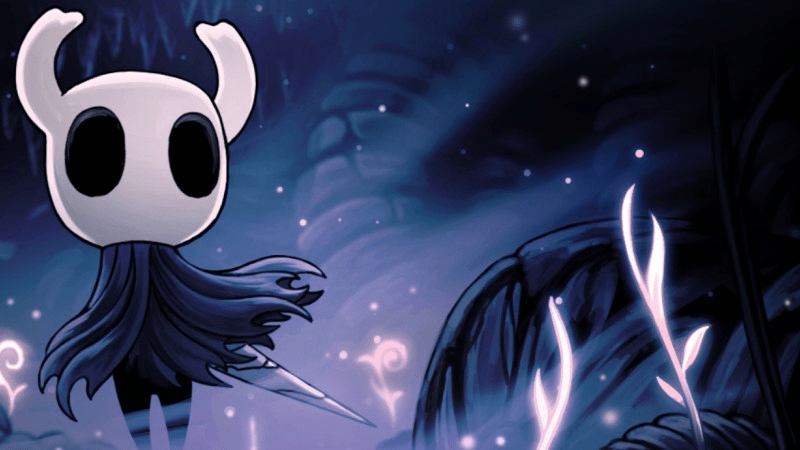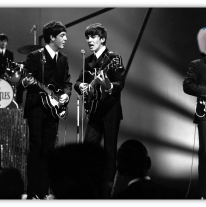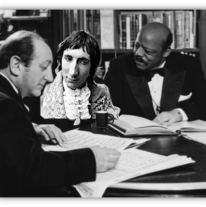I have a confession to make. I hate Zelda: Breath of the Wild.
Before you proceed to tar and feather me for my crimes, I implore you to let this heretic speak and tell his tale.
1. Beginnings
I am not what most people would call an avid gamer. I grew up as the youngest of five children, and I had to share time on the ol’ NES with my other siblings. Perhaps due to this rationed access, I am often content to watch others as they play video games rather than play myself. Nevertheless, I have played a fair number of games in my life, and have even beaten a few of them. No really, I swear!
More than anything, I love the ones that really tell a story. I don’t mean games with extended narrative cut scenes—I can’t stand those. I prefer games that reveal a strong sense of place and atmosphere as you’re playing them, or provide insights into key characters. With setting and character established, whatever plot machinations there are to drive my actions in the game feel all the more salient, and I feel doubly compelled to carry out whatever task is required of me.
I hadn’t owned a game console since the Nintendo Wii came out in 2006, but the pandemic changed things. Once the lockdowns went into effect, I began to seek out ways to fight cabin fever. Several friends recommended the Nintendo Switch to me, especially based on its flagship game, The Legend of Zelda: Breath of the Wild.

Now, I’ve always been partial to the Zelda games. Upon seeing the trailer for BOTW, it was love at first sight. This game is absolutely gorgeous, looking almost like a playable version of Hayao Miyazaki’s Princess Mononoke. Moreover, it’s designed to be an open world adventure, prioritizing player freedom in how to navigate the world and master it, and I had loved the open world aspects of a previous Zelda release: The Wind Waker. So naturally I went with the Switch, and immediately dug into this new game.
And yet, after two full playthroughs, I must say that I am deeply disappointed with Breath of the Wild. In fact, I’m disappointed with Nintendo for releasing something that seems so unpolished, so unfinished, as this game seems to me. I think it’s an insult to the Zelda franchise.
If my melodramatic introduction didn’t already give it away, let me make clear that my opinion is an extremely unpopular one. This game has been given pretty much perfect reviews among critics and consumers alike. My opinion is tantamount to heresy, and I’m okay with that. You can’t really argue taste. But I still feel compelled to articulate what it is about it that I find so disappointing.
2. A Tale of Two Heroes
By way of expounding upon my critique, I will be comparing Breath of the Wild to the very next game that I played on the Switch. That would be Hollow Knight, an indie title made by Team Cherry from Australia. In short, I think that Hollow Knight is an expertly crafted product that does everything I want a video game to do, while Breath of the Wild makes a lot of big promises that ultimately don’t hold up.
People who are familiar with both games might be thinking: “Um what? Those are some very different games!” It is true. They are quite different. Hollow Knight is a retro-style game, lovingly referencing classic 2D side-scroller titles such as Metroid and Castlevania. It focuses on speed and precision in platforming and combat. Breath of the Wild is a three-dimensional wonderland for open exploration and puzzle solving, with some emphasis on combat as well.
But there are important similarities as well. Breath of the Wild was apparently influenced by open world games such as Dark Souls, yet Hollow Knight is also deeply indebted to Dark Souls’ world-building and playing mechanics, adapted for a 2D environment. Accordingly, the game also encourages free exploration, though not to the extent of BOTW. Their opening premises are quite similar: both are post-apocalyptic tales in which an amnesiac hero tries to make sense of the world around them, hopefully in time to stop a cataclysmic threat from engulfing the land and its people.
As such, both games reward player exploration with narrative content. The more you explore, the more you’ll learn about the larger story and the hero’s role in it. Or, more accurately, that’s the promise of both games, but it’s one that only Hollow Knight actually delivers.
3. Mild Knights
When I started Breath of the Wild, it felt like the possibilities would be endless. This enormous open world was at my feet. What a thrilling prospect! The ruins I encountered as I roamed the lands raised so many questions about what had happened during my character’s slumber. I couldn’t wait to uncover the secrets that surely awaited me. I must admit, the highs I felt at the start of the game were truly something: fear, wonder, mystery, constant opportunity. If only the game had managed to deliver a payoff for such a great setup. Alas, all I discovered after my hours of exploration and mastery of the environment was a hollow shell where a story should have been.
There is no real narrative to be learned about the land of Hyrule, no story insights beyond the fact that princess Zelda struggled with the weight of her responsibility as a protector (does that even count as a spoiler?). No insight at all into Link as a character, or any other character. Not even the central villain of the story.
For all its gloss, the game is a narrative dead end. Neither the existing towns nor the ruins convey any sense of who the people are, what they value, or what might threaten those values. The more land you traverse, the more repetition you observe. A ruin is a ruin is a ruin. There is no story gained at Hateno Fort, nothing learned about Akkala Tower beyond “battle happened.” Even the presence of Calamity Ganon and his minions don’t effectively communicate a sense of threat or urgency.
The townspeople you encounter seem inconvenienced at best, but are mostly preoccupied by silly hobbies like mushroom collecting, or sightseeing. They are blank automatons, with less personality than an animatronic ride at Disney World. Without characters that feel embedded in the world I’m navigating, the terrain feels less like a setting for the story, and more like a pretty backdrop for an empty stage.
Even worse, because the world is so open, most of my actions feel meaningless, and without impact. Does it matter if I save the sheep of a villager from monsters? Not really; all I get is a small material reward. Does it even matter that I am fighting Gannon’s forces? Technically yes, if I happen to finish the game, but there’s never a sense that Gannon feels my presence, or is threatened by my advances against him. There is never any point in which his corruption spreads, or recedes. Like everything else, the central threat remains in stasis, completely meaningless until you’re ready to finish the game. By committing so fully to the principle of open exploration, the designers gutted all sense of narrative import from their game.
4. Into the Deep We Go
Now, hark and hear this hero’s story (this one has some actual spoilers, so beware). A mysterious figure descends upon a kingdom that has fallen into ruin. The music that plays is beautiful, but mournful, not unlike the beautiful ambience of the ruins. The hero (a bug, like the rest) descends into dark tunnels, trying to figure out what is going on, constantly fighting away what seem to be bug people driven mad by some sort of infection. The encounters can be extremely challenging, some even downright punishing. But despite the pitfalls, despite constantly getting lost, and feeling claustrophobic, the hero journeys onward.
Along the way the hero encounters some few bugs who have so far escaped infection, and learns about many more who did not escape. We even learn about individuals that we as players have to kill. We learn about the land, the customs and history of various factions, and how they reacted when the infection came. The terrain gives us insight into the people and their history, such as the City of Tears being locked off to bugs that were not part of the aristocratic class. Alas, class privilege did not save them from the infection, so now nothing roams the city beyond sad zombies bedecked in jewels.
We even learn more about the hero we play, and in the process we learn about some truly dark deeds committed by powerful figures who were probably trying their best to navigate some impossibly difficult situations. In short, we get a vivid sense of place, populated by colorful and relatable characters, contributing to a larger historical fabric of culture and history, adding up to a grim but nevertheless inspiring humanistic portrait of heroism in the face of horrendous cataclysm. Everything, from the terrain, to the music, to the dialogue, to the discovered bits of lore, even the fighting itself, contributes to this larger narrative.
5. The Call to Action
I gotta tell you, playing Hollow Knight really fucking helped me deal with the isolation, depression, and panicked uncertainty of the pandemic. It was sometimes so difficult to master the fighting and platforming that I threw my controller and cursed the screen several times, but despite the stress I soldiered on. It was sometimes so grim and dark that I would have crazy nightmares based on what I was encountering, but still I played on. I’m a casual gamer who much prefers easier games, so never have I felt so saliently the feeling of threat as I did when playing Hollow Knight. And still, I kept at it.
I kept playing, I got better, and eventually I beat the fucking game. Not just the bogus ending, but the real ending, the one that has narrative importance. And man, beating this game really felt like a profound accomplishment. Not only did I feel like I embodied the story’s hero and did their character justice, I felt like I actually went through some personal growth playing this fucking game. I got insight into feelings of terror, dread, existential uncertainty, moral grayness. I was inspired by some fleeting, essential moments of warmth and courage from other characters, both alive and dead. These stood out like flickers of a candle against the oppressive gloom that permeated the game. And that gave me some hope, as it allowed me to process how we humans actually come together and deal with trauma and uncertainty in real life.
This $15 indie game made by 5 people gave me what the best literature and art films are supposed to give. It gave me guidance, and inspiration. It made me want to be a better person.
TNOCS.COM CONTRIBUTING AUTHOR Phylum of Alexandria
That’s a fucking hero’s tale for you. Contrast that to the flagship game from the giant of the mainstream gaming world, one that was designed by an enormous team, relying on an enormous budget. That game offered me nothing but empty promises and hollow shells. I beat that one too; it was far too easy. By the time you defeat the four bosses preceding Ganon, your character is so overpowered that the final battle is basically just a song and a dance before the game’s end. Incredibly unsatisfying, yet again.
For the sequel, I do hope that the Breath of the Wild engine can serve as the template onto which Nintendo’s designers can build a more fully formed game. And given that past Zelda games have been great, it’s not a fool’s hope. But still, considering the unanimous praise that’s been bestowed on something that I regard as not much more than a beautiful, expansive demo, I do worry that Nintendo has any reason to put the blood, sweat, and tears into making a truly satisfying gaming experience, rather than more freeplay in the world’s prettiest virtual sandbox.
But hey, even if that sequel sucks, there’s always Hollow Knight: Silksong! I can’t wait to test my mettle once more and dig into another immersive narrative from the geniuses at Team Cherry. Of course, now my gaming time has to compete with time for other stuff, like seeing friends and going places, so who knows when that will actually happen. It’s past time for me to navigate the various terrains of the world outside my home, to engage directly with NPCs I encounter, and to hopefully gain insight into the larger story as I attempt to level up. I can’t wait!
What does a good game look like to you?
What helped you get through the pandemic lockdowns?
Do we really need to proceed with this tarring and feathering?
….Okay, if you insist…
Let the author know that you appreciated their article with a “heart” upvote!





At the risk of dating myself, I do have to admit that it has been quite a while since I’ve played a modern video game.
I started, and this is not a boomer joke, with Atari’s “Pong,” after school at the mall, in front of a stand-up machine inside a Woolworth store. For those of you who have to look it up to find out what it was all about, I guarantee that you will be horrified at how impossibly primitive it was. Believe it or not, it was considered revolutionary at the time.
The price to play was exorbitant: it was $.25 per game. I did get better at it, and graduated to Space Invaders, Asteroids, and the ubiquitous PacMan.
I think the closest that I would be able to come to your experience would be a game called “Myst.”
Someone gave it to me as a gift, and while I was very appreciative, I didn’t have the first clue of what it was all about or how to play. But after I dived in, I found that I loved all of the puzzles and challenges when trying to solve the mystery. It did take me quite a while, but it was very enjoyable. So that’s a possible answer to your question; for me, a good game is one that engages, challenges, and frustrates just a little bit, but eventually lets you see at least a partial victory.
As to your tarring and feathering? No way. This was great.
Thanks for a terrific article to kick off our Fun And Games category.
Atari was great! That was our first home system before NES. Pacman was fun as hell. Frogger and Raiders of the Lost Ark were terrifying as a young kid.
I never played Myst, but the same company made The 7th Guest, which I loved. It’s also a bunch of puzzles, couched as haunted house murder mystery. It also had this cool spooky cabaret song as an Easter egg:
https://www.youtube.com/watch?v=aDsoN48HI54
Good tune! Video games have some great music these days, though you’d think that as artists themselves the companies would pay the composers more.
The way you described Breath of the Wild reminds me of the criticism of No Man’s Sky six years ago. NMS got tons of hype about the 584 billion planets that could be explored, this seeming universe of diverse experiences. But people who played the game often found the planets repetitive and the game fell into the cellar of “1,000,000 miles wide and an inch deep.” I haven’t heard anyone mention No Man’s Sky in 5 1/2 years now…
I prefer a solid story and practical game mechanics to the overwhelming newness of a hyped platform. I’d rather watch a Jim Jarmusch movie than a Michael Bay movie every day of the week. Sometimes I want popcorn, but I won’t keep coming back it it over and over.
I never heard of No Man’s Sky (which reinforces your critique of it), but I guess the crucial difference here is that everyone loves the nothingness! Except a few people who get funny looks from the others.
I’ve never been a gamer. As a child we weren’t allowed a computer, console or even a gameboy. I asked a few times at Christmas but never got one and it was never said why. Played occasionally with friends at uni but I was well behind the curve by then and didn’t really get into it. Only console I’ve ever bought is a Wii, I do enjoy MarioKart against my daughter but thats as far as it goes.
With Hollow Knight it sounds totally immersive and I totally get your passion for it. If I ever did get into gaming it sounds like the sort of thing that would become all consuming.
What got me through lockdowns? I did some family tree research. That got time consuming. Starts off easy with everyone that’s still alive and then grandparents and their siblings that played a big part in my childhood but once you’re into early 20th century and back into 19th century it gets complicated with so many different branches to follow. Interesting stuff but feel like I need to take a year off work to do justice to it.
I would love to do a family tree. I wish my family had kept better tabs on that stuff. My dad doesn’t even know his grandfather’s first name!
I guess there are some potential threads that popped up recently, as social media has allowed me to find a few second cousins. Weirdly, one of them was someone I had been familiar with (a friend of a friend) for years, someone who’s currently making a name for himself in film. Another happened to be doing neuroscience research like I was. And another was born in Italy (my father’s grandfather was Italian) and still visits his family there. If I ever get to meet up with them I should probe into details about their family so that I can get at least a few more clues about my own tree.
My cousin has been researching our family and found that the first Bois in North America came over from Poitiers, France as a soldier. While stationed in Quebec, he was convicted for going AWOL and stealing clothes, escaped prison, got caught stealing clothes again, and escaped prison a second time. He made it to New Brunswick and apparently stayed out of trouble long enough to marry and have a family. Hence, me. I don’t know how true any of this is, but it’s a good story.
My mom said that her grandfather changed his name from something she didn’t know. Why, she didn’t know, but often stated that her family was full of criminals and shady people. Which is certainly a great teaser, but I’d love to find out the juicy details some day!
That’s great, plenty of intrigue. My gran would always refer to one branch of her ancestors as being bad people but she was tight lipped as to what they’d done to incur her tutting. She also said that one of her great grandmothers was a witch – not the cackling broomstick kind but one that dealt in herbal potions and healing.
Its the one drawback when you get far enough back the records are there but it doesn’t give the stories of why. My grandma had told us her grandad was a Danish sea captain and sure enough I’ve found the records to confirm it but what made him settle in England and change his name to something more English I don’t know. On the other side of the family some came over from Norway in the late 19th century and even the ones that are British are from various parts of Scotland and the English Midlands before ending up in North East England. Interesting stuff to see just how mobile everyone was moving round the country and the continent back then.
This was a great piece, Phylum. I’m not a gamer, but I got a clear sense of why Breath of the Wild didn’t work for you and Hollow Knight did. I can also certainly identify with something that helped take your mind away from the backstory of life in 2020-2022. (You’ll get an idea of what did that for me on Thursday!)
Thanks! Nice, I’m looking forward to it.
I wound up getting hooked on “Raid” last year, long before Jeff Goldblum started doings ads for the game. It’s MrDutch’s fault – he got me into it, lol. I refuse to pay for anything though, so I just continue to grind it out as I move along through the levels.
I always thought those storyline games (like old school Myst) were right up my alley, but I’ve just never gotten in to them for fear I’d never be able to tear myself away. I’ve been alarmed at how much time can pass when I was playing World of Warcraft, and Star Wars Online, and I just couldn’t stop because I had to get to the next thing….!
After covid lockdown had been in place for a few months in 2020, we thought it’d be fun to get ourselves an XBox. It was a very sobering reminder that we’re old and have no business playing those games anymore – the games we got gave us motion sickness, literally. I wanted to curl up in a fetal position after a minute of playing every time, it messed with my head so bad. Actually returned the XBox. Getting older sucks!
Certainly the retro design of Hollow Knight is one of the things that I love about it–you can’t beat 2D! Only a few 3D games I’ve played were not nausea-fests.
I’ve never even heard of Raid, so you’re more on top of things than I am!